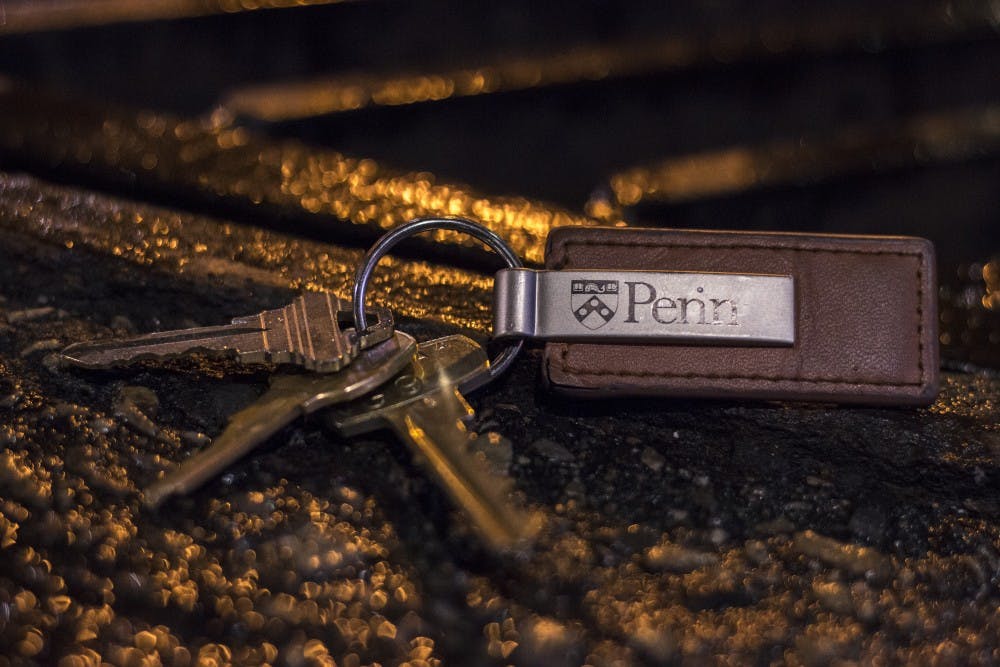
Losing a campus residential key incurs exorbant prices for students.
Credit: Julio SosaWelcome to the world of keys, where losing the sliver of metal in your pocket will leave you down over $200. Much to the disappointment of Penn conspiracy theorists, there is a reason for the high fee other than Penn wanting to make a profit on your misfortune.
This doesn’t stop many students from complaining that Penn greatly overcharges key replacements as a means to scare students into keeping better track of their belongings, rather than simply covering the costs of changing the locks and cutting new keys.
“I’ve checked all over the internet. A competitive lock change is nowhere near the 225 bucks they charged me, nor is a replacement key,” College freshman Carl Fulghieri said.
“You can have a copy made for almost nothing. It’s the same reason they charge you at the information desk for forgetting your PennCard in your room too many times. It’s a good motivator, but it seems incredibly excessive,” he added.
It turns out that making new keys really is that expensive. Senior Associate Director of Building Operations for Residential Services Derek Hunsberger explained that the high price tag is not to “scare” students, but rather it’s the outcome of Penn’s strict adherence to “safety measures.”
“We keep a very strict inventory of keys. The last thing we want is for a key to end up in the wrong hands,” Hunsberger said. “Once a key isn’t accounted for, a locksmith is dispatched and completely changes the room’s locks. If we left a key in circulation that wasn’t accounted for, someone could say they lost their key and then find it. They could give it to a friend or keep it for the next year. We don’t want to risk it.”
Many students question the security of physical keys, arguing that they could make a $10 copy at The Home Depot. However, Penn has a stock of patented key blanks that is unique to the University and its locksmith. This means that making a copy of your room key is extremely difficult, though Hunsberger acknowledged it is possible for copies to be made illegally.
While some students are satisfied with the large fee in exchange for increased security, others argue that the fee makes students less likely to report a missing key.
“When I first lost my key, I waited for weeks before I finally reported it. I debated going the whole year and hoping that it would turn up so I wouldn’t have to pay the $225,” Fulghieri said. “Making it so expensive just makes it more difficult for students to admit when they lost their keys.”
Luckily for both students and administrators, the school is hoping to slowly phase out keys in favor of electronic locks, which can be opened using PennCards. Until this happens, hang on to your keys.
The Daily Pennsylvanian is an independent, student-run newspaper. Please consider making a donation to support the coverage that shapes the University. Your generosity ensures a future of strong journalism at Penn.
DonatePlease note All comments are eligible for publication in The Daily Pennsylvanian.








